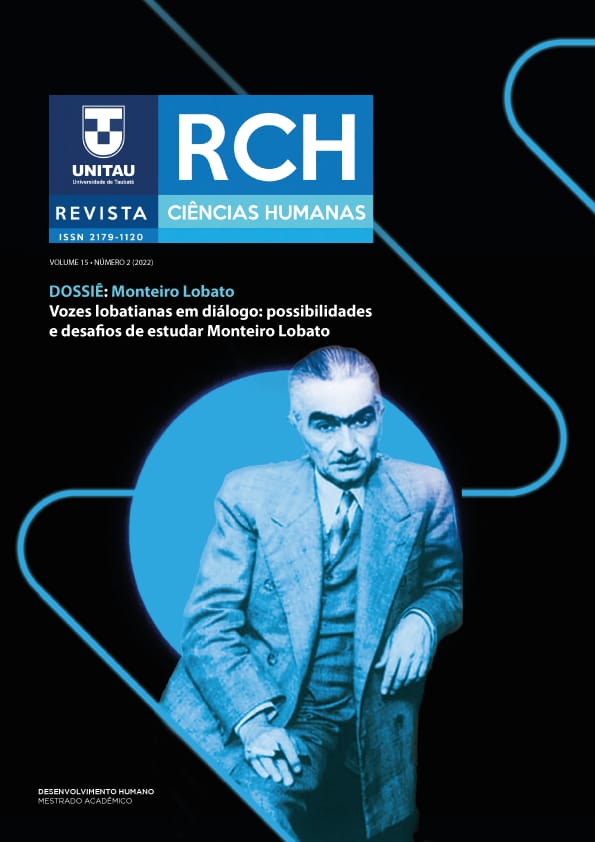READING LOBATO AT SCHOOL
DOI:
https://doi.org/10.32813/2179-1120.2022.v15.n2.a860Keywords:
Negrinha, Monteiro Lobato, Racism, TeachingAbstract
This text intends to present some points related to the reception of the short story "Negrinha", by Monteiro Lobato, by the students of ETIM of Informatics in Etec Abdias do Nascimento, in São Paulo. For the analysis of the reception ot the story, was consulted Rildo Cosson's reflections about literary literacy, Maria Helena Martins' theory about reading, and Annie Rouxel's definitions of reader and schooling reading. The collected data described in this text were obtained during two days of classes in Etec. In the first day, the students read Lobato's story and made considerations on the language, the plot, the characters and their understandings. In the second day, the students discussed about the story's historical background and read it again to make more considerations. Through the analysis of student's considerations, it was verified whether the students think that the story is racist or presents the prejudice against black in the society.
Metrics
References
Cosson, R. (2014). Letramento literário: teoria e prática. Versão ebook. São Paulo: Ed. Contexto.
Costa, T.C. da (2020). Negrinha na sala de aula: estímulo ao preconceito ou à reflexão? [Dissertação de Mestrado em Letras - Programa de Pós-Graduação em Letras, Universidade Federal de São Paulo, Guarulhos].
Lobato, J.B.M. (2008). Negrinha. 2.ed. São Paulo: Editora Globo.
Martins, M.H. (1982). O que é leitura. São Paulo: Editora Brasiliense.
Rouxel, A.; Rezende, N.L. de (org.). (2013). Leitura subjetiva e ensino de literatura. 1.ed. São Paulo: Editora Alameda.
Downloads
Published
How to Cite
Issue
Section
License
Copyright (c) 2022 Human Sciences Journal - RCH

This work is licensed under a Creative Commons Attribution 4.0 International License.
The publications of the Human Sciences Journal are registered under the Creative Commons Attribution CC-BY license.
1. The contents of the manuscripts are the exclusive responsibility of their author.
2. It is allowed the total or partial reproduction of manuscripts published in the journal, provided that the source is cited.
3. When submitting their manuscript to the Journal, the authors certify that they are of their own authorship and unpublished (not published in any digital or printed media).
4. The copyright of the articles published in the Journal are of the author, with first publication rights reserved for this journal.
5. For disclosure purposes, the Journal may replicate the works published in this journal in other media, such as social networks (Facebook, Academia.Edu, etc.).
6. The Journal is of public access, therefore, the authors who submit manuscripts agree that they are of free use.
7. In case of any illegality, fraud, or other attitude that puts in doubt the honesty of the publication, especially the practice of plagiarism, the manuscript will be automatically rejected.
8. If the manuscript has already been published, it will be immediately removed from the base of the Journal, its citation linked to the Journal will be prohibited and the cancellation of the referred publication shall be reported in the next issue of the one in which the article was published. In case of the procedure for the withdrawal of the paper the authors will be informed beforehand, being guaranteed the right to a broad defense.
9. The personal data provided by the authors will be used exclusively for the services provided by this publication and will not be made available for other purposes or to third parties.





